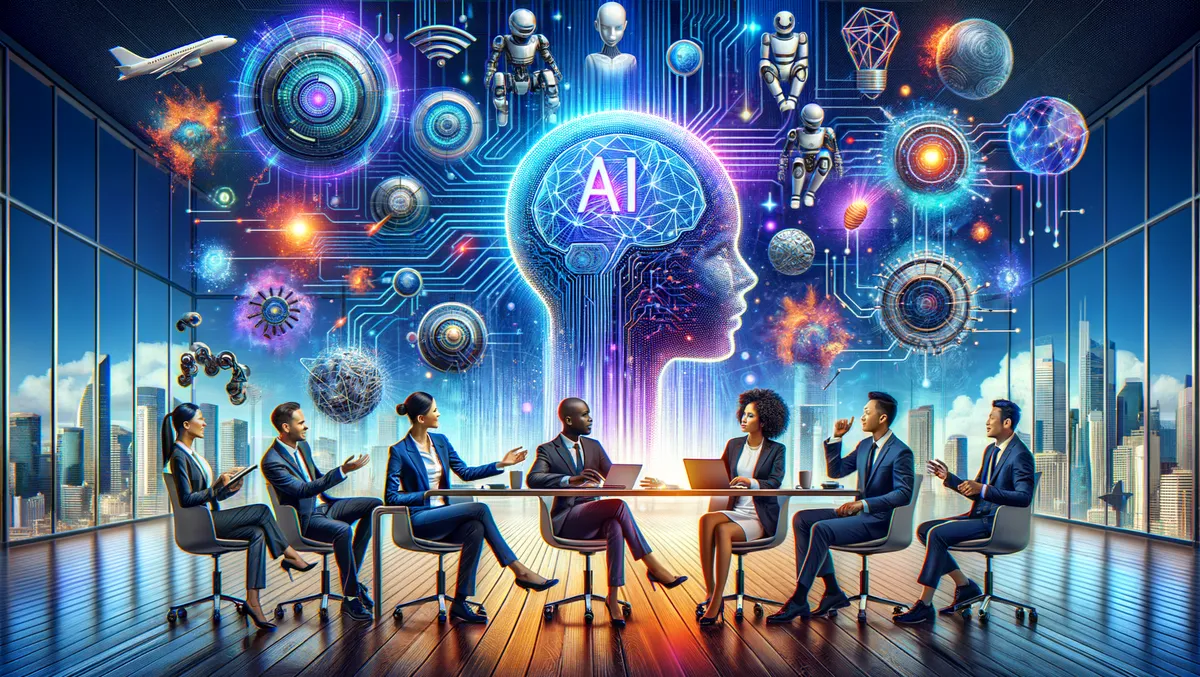AI and the Future of Work: How Technology is Changing Our Careers

AI went from being a sci-fi dream to becoming a necessary component of our daily life in a matter of years. We can already observe how technology is changing the world around us, from AI-powered recommendation systems to autonomous automobiles and Siri and Alexa. However, the impact of AI on the workplace is arguably one of the most profound. The future of our careers has been rewritten by automation and sophisticated systems. In this article, I'll examine how artificial intelligence (AI) has been transforming the workforce, the opportunities it presents, and the competencies we'll need to succeed in this quickly evolving environment.
Automating repetitive jobs is one of AI's more obvious effects on the workplace. AI-powered systems are increasingly handling tasks that previously required human input, including as data entry, inventory management, and even customer service. These days, machines are faster and more efficient than humans at analyzing data, forecasting results, and even creating individualized client experiences. As a result, processes have been streamlined, a company's bottom line has decreased, but there are also rising worries about job displacement. However, robotics is a transformative process that allows humans to focus on more creative and strategic duties while leaving the most hazardous and monotonous tasks to machines. It is not just about eliminating jobs. Robots, for instance, have replaced most assembly line jobs in manufacturing, but they have also created opportunities for maintenance work in robotics, programming, and AI supervision.
Nevertheless, even though AI is developing so quickly, traditional jobs are not the only ones that are being negatively impacted. There are entirely new employment options becoming available. These days, some of the most sought-after positions on the job market are data scientists, machine learning engineers, and AI ethical specialists. Companies are looking for talent that can not only create these AI systems but also handle the many ethical issues that come with them, such as concerns about algorithmic bias, data privacy, and the effects of automation on society. The need for human-AI collaboration capabilities is also being driven by AI. One of the most crucial career qualities as we transition to working collaboratively with intelligent systems will be the capacity to comprehend and use these technologies. Experts who can bridge the gap between technical knowledge and interpersonal communication will be highly valued in a variety of fields, including healthcare and finance.
While AI is generating new and diverse job kinds, it is also transforming the abilities we will need to succeed in the workplace. Conventional educational paths are no longer sufficient to prepare students for the demands of the future. Technical abilities are becoming less significant than critical thinking, creativity, and adaptability. Continuous learning is becoming a given: in order to keep up with the rapid advancement of technology, professionals will need to constantly refresh their knowledge. Fortunately, however, the development of AI is making education more accessible. Courses in everything from coding to AI ethics are available on online learning platforms such as Coursera and edX, many of which are utilizing AI to create more individualized learning experiences. People may learn at their own pace with these tools, making it easier to acquire the skills needed to succeed in a job market driven by artificial intelligence.
Nearly every business is impacted by AI. AI-powered diagnosis technologies in healthcare help physicians quickly and accurately diagnose disorders. By automating trading and forecasting market movements, algorithms in the financial industry are completely changing how people invest. AI is even being utilized to produce new works in more artistic fields, such as music and art, by fusing machine accuracy with human originality. This raises the question of whether these businesses are losing some of their human element, according to some. But according to a number of scientists, AI will enhance human creativity and knowledge rather than replace it. For instance, even if artificial intelligence (AI) can analyze vast amounts of data in a matter of seconds, human understanding is still required to interpret the results and determine their uses. The future of work may not be dominated by AI in that sense, but human-machine collaboration may influence it.
As AI develops further, labor will be done in a way that strikes a balance between human ideals and technological power. Employees will need to be adaptable and flexible, updating their abilities on a regular basis and keeping an open mind. At the same time, society will need to address the ethical dilemma that AI presents: automation should benefit everyone, not widen the disparity. It is highly likely that the workforce of the future will differ from that of today. Some jobs will be replaced, while others will be created. However, adaptability and a dedication to lifelong learning are essential for success in this new century. AI is changing the nature of work, but with the correct attitude, it can also lead to opportunities we never would have imagined.
As we can all see, artificial intelligence is already being used in the workplace and is probably going to grow. Many people are uncertain about this, but innovation and advancement are promised. We will reach a stage where we feel confident and interested in our future at work if we embrace these changes and force ourselves to acquire new abilities for using such technologies. However, the decisions we make as humans will determine the future, not machines.
Yes I agree that Ai is doing all of our works , its easy for us too right !!
ReplyDeleteYeah now very important AI to all
ReplyDeleteAi is amazing technology 😎
ReplyDeleteSuch an amazing and creative blog☺️
ReplyDelete